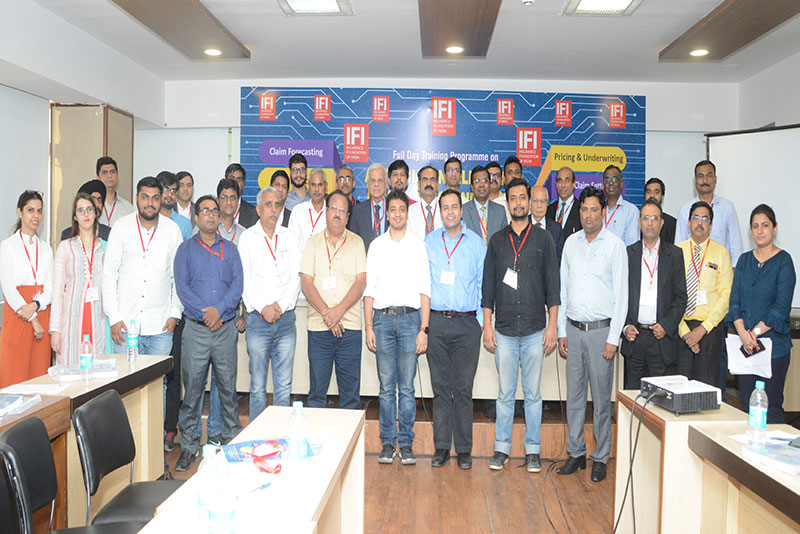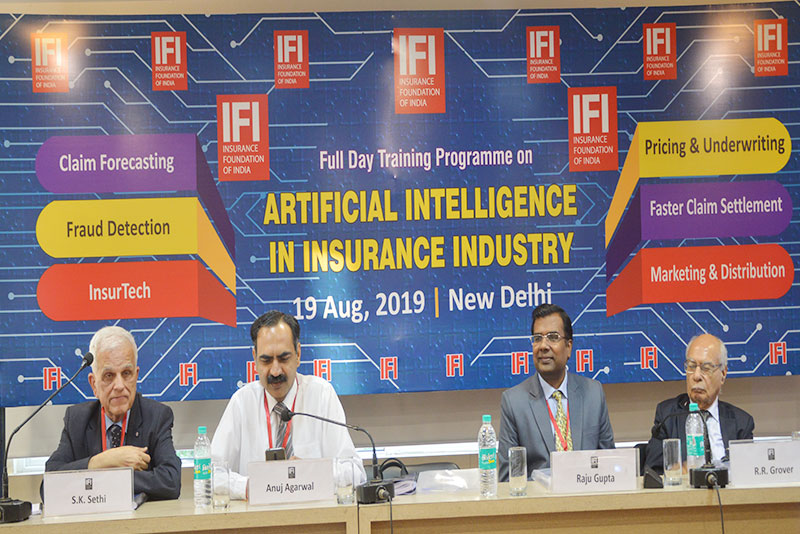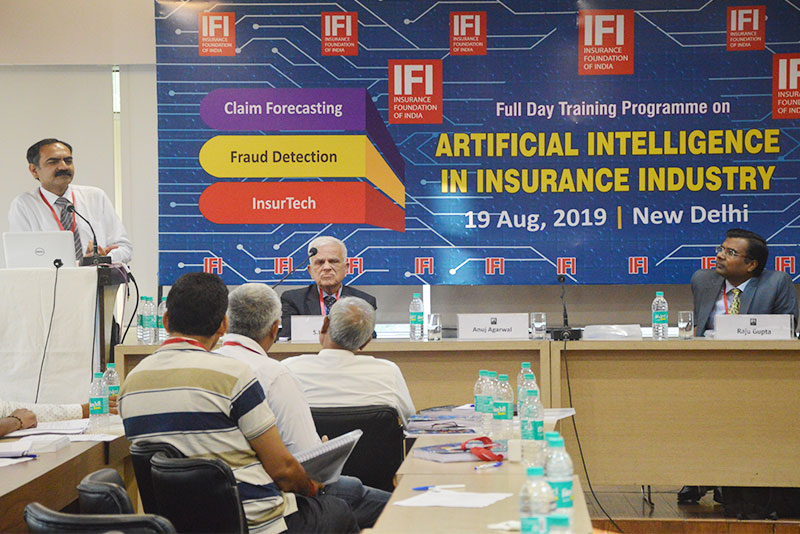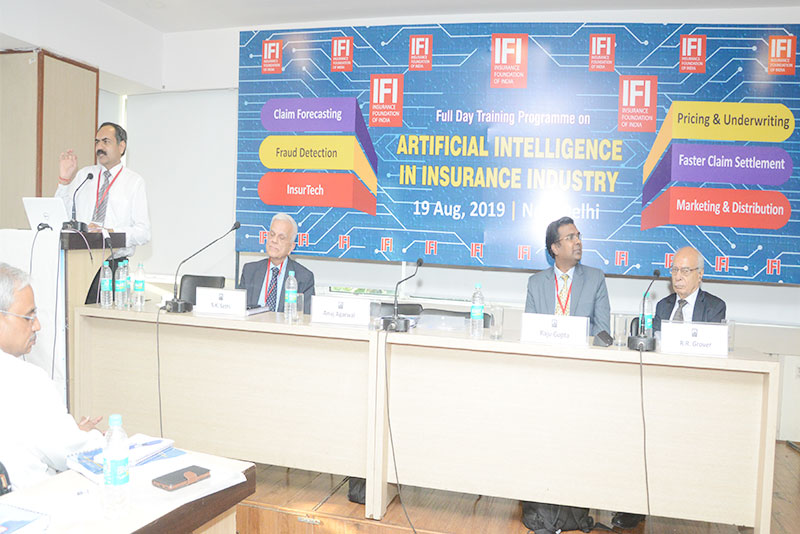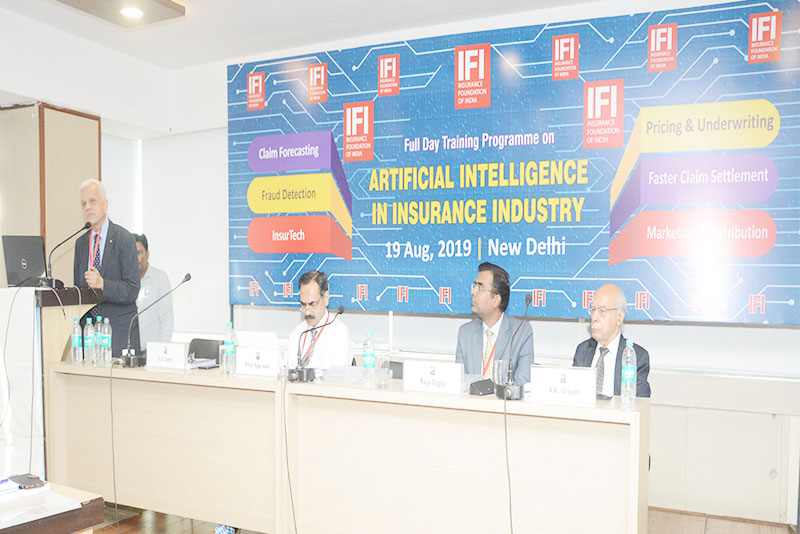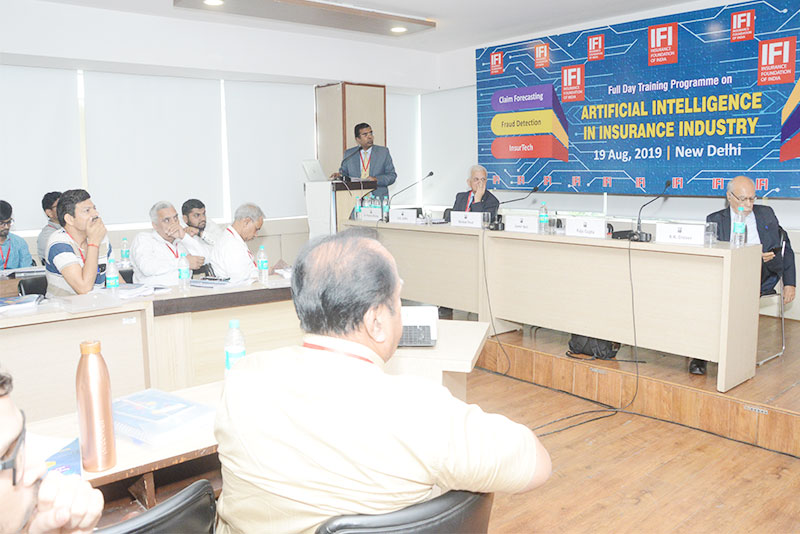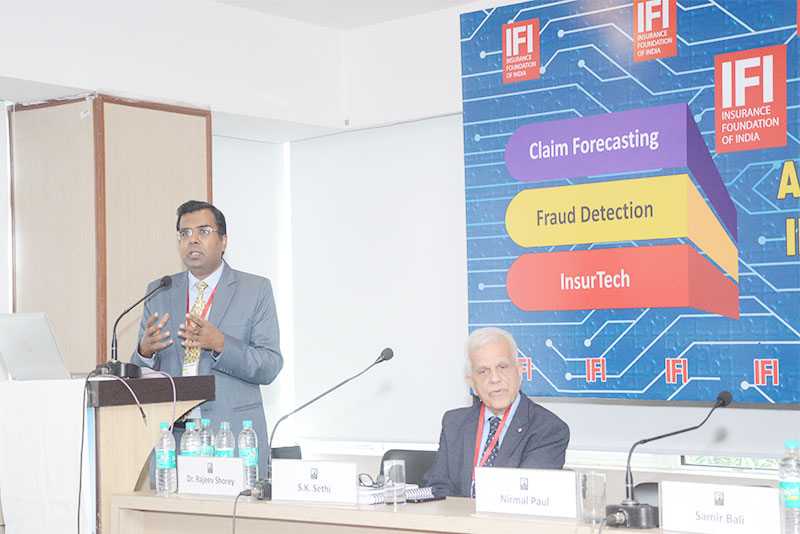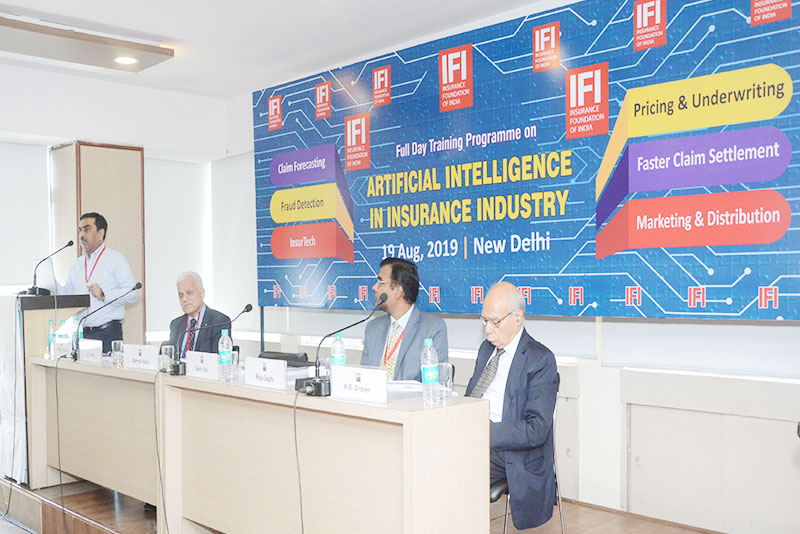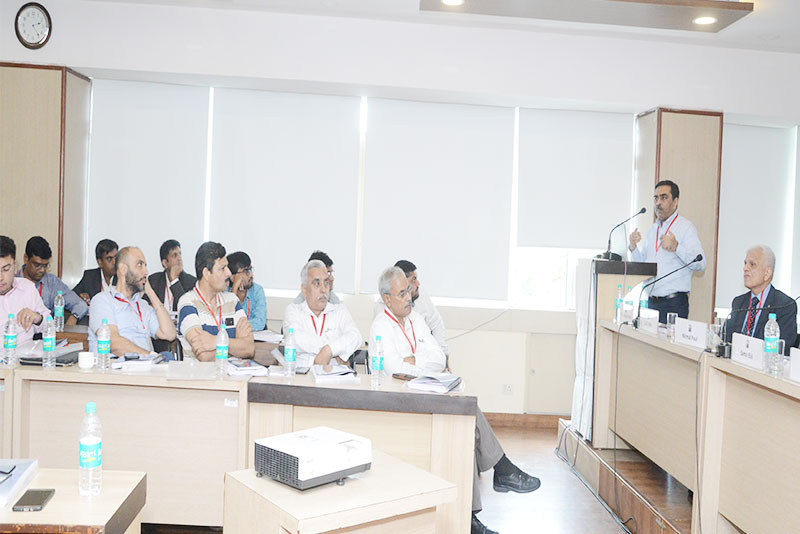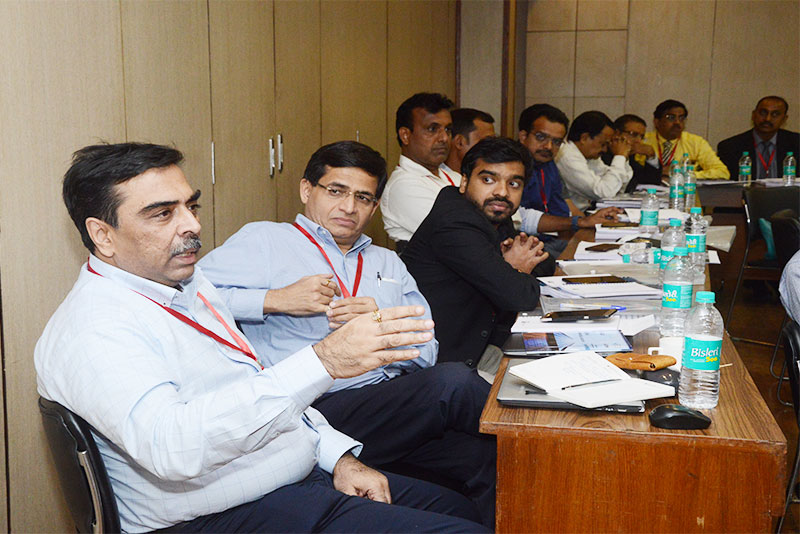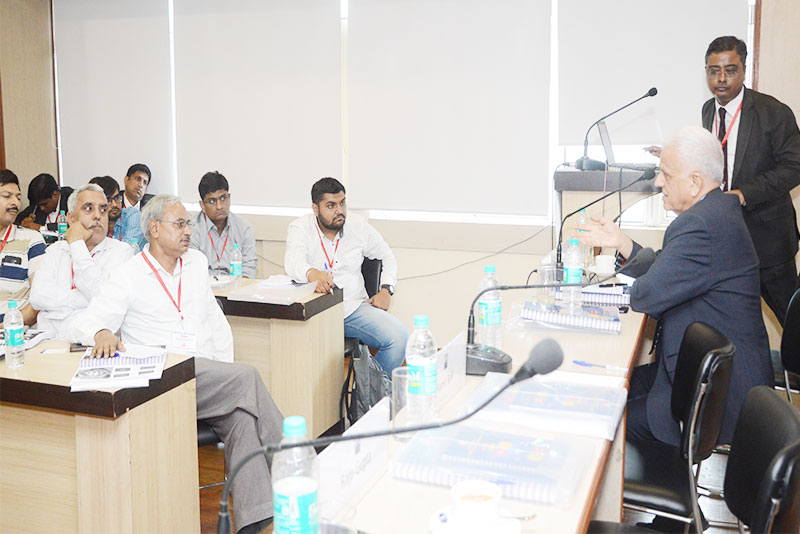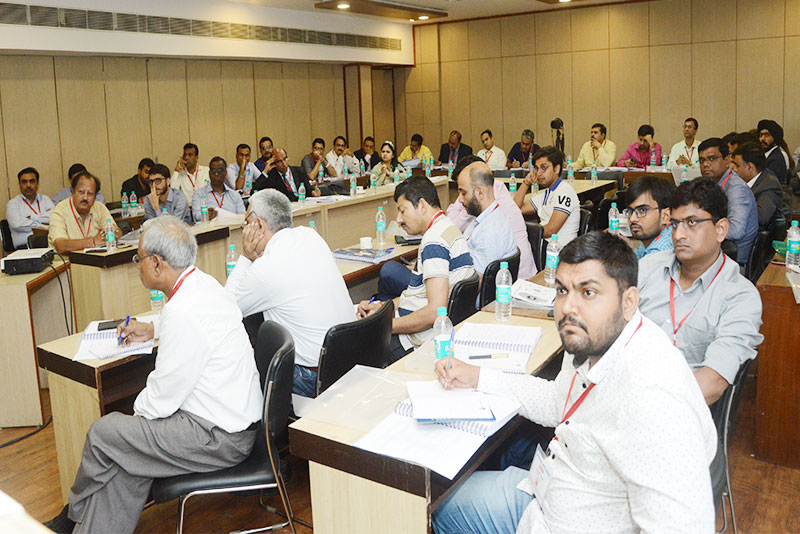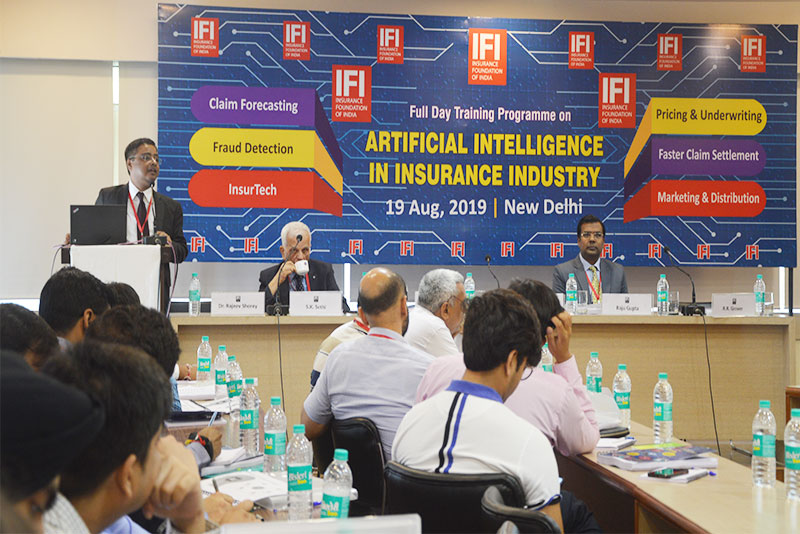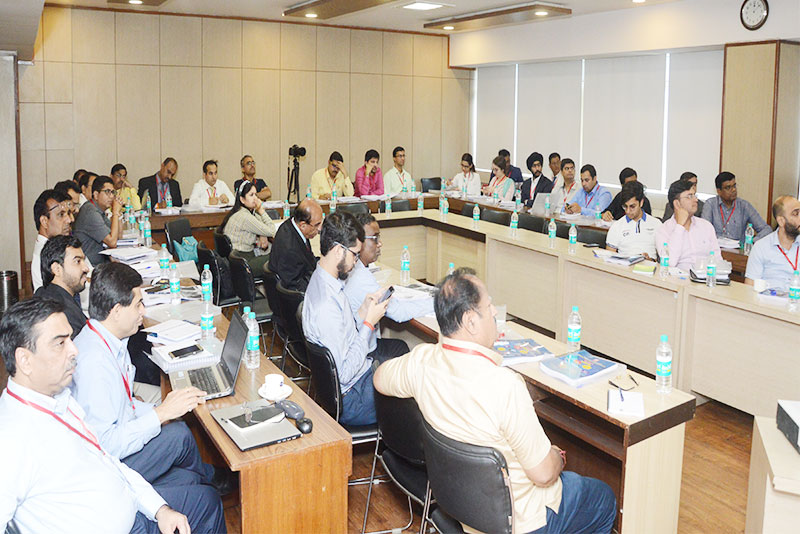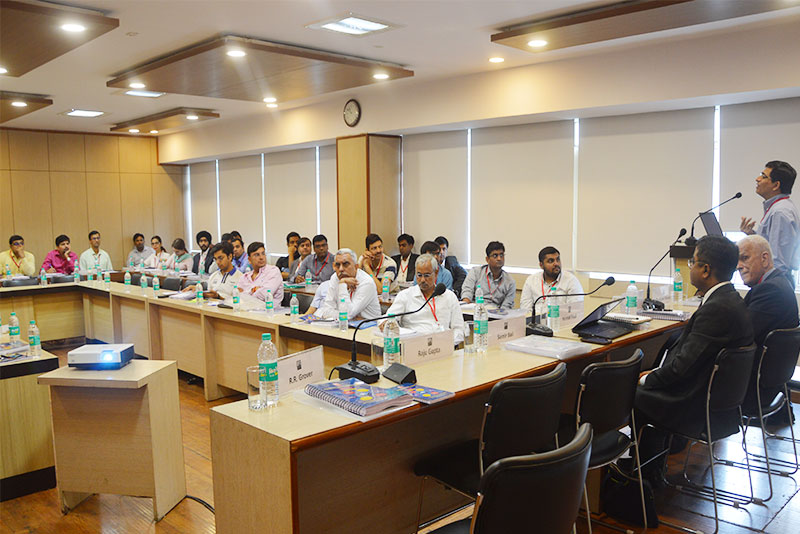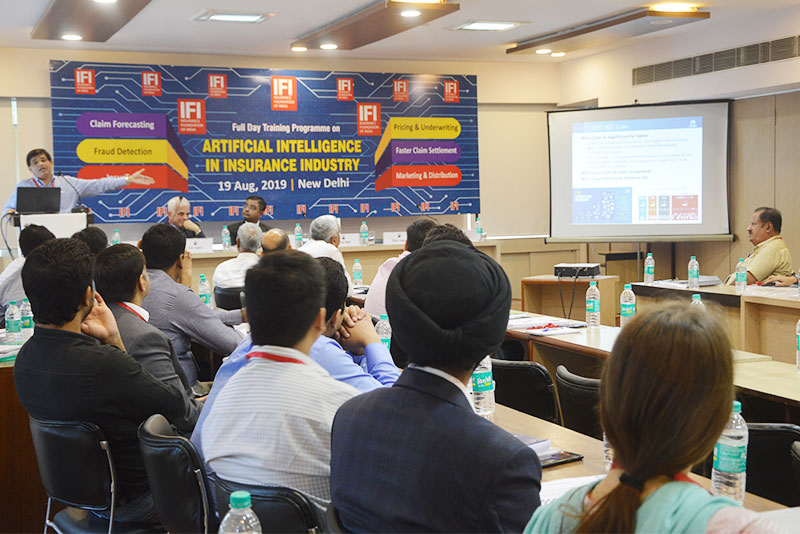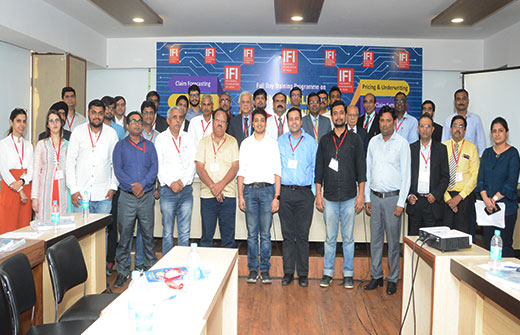Why need for Specialized Training Programme on Artificial Intelligence in Insurance Industry?
What is AI – Most people use AI in a very broad perspective. It is important to first understand what AI refers to:
“Artificial Intelligence refers to intelligent software that can draw on data in order to autonomously control machines, produce forecasts, or derive actions.”
Artificial intelligence is the future of the technological advancements. It can be understood as the intelligence that is displayed by the modern day machines. They develop this by evaluating the amount of data that they have stored from their past experiences. In this Machine understands its environment and responds accordingly. Use of artificial intelligence is going to increase in the coming years. It is going to enhance the efficiency of the business as well as it will reduce the numbers of errors that occur due to human errors. In many cases, it can be seen that artificial intelligence is not only changing the business, but it is changing the overall dimensions of the business and hence improving customer experiences.
Many businesses take up artificial intelligence (AI) technology to try to reduce operational costs, increase efficiency, grow revenue and improve customer experience.
For greatest benefits, businesses should look at putting the full range of smart technologies – including machine learning, natural language processing and more – into their processes and products. However, even businesses that are new to AI can reap major rewards.
Businesses are increasingly looking for ways to put artificial intelligence (AI) technologies to work to improve their productivity, profitability and business results.
Time is Ripe – Apply AI in Insurance
Rapid advances in technologies in the next decade will lead to disruptive changes in the insurance industry. The winners in AI-based insurance will be carriers that use new technologies to create innovative products, harness cognitive learning insights from new data sources, streamline processes and lower costs, and exceed customer expectations for individualization and dynamic adaptation. Most important, carriers that adopt a mind-set focused on creating opportunities from disruptive technologies—instead of viewing them as a threat to their current business—will thrive in the insurance industry in 2030.
Use of Artificial Intelligence in the Insurance industry in India is going to increase at a fast pace in the coming 4 years and so will be the need for Data Protection & Implications of IT Act.
However, while there are many business benefits of artificial intelligence, there are also certain barriers and disadvantages to keep in mind.
Advantages of AI in Insurance Firms:
Some of the advantages attached with the use of AI in Insurance firms are as follows:
- AI helps in making the work process easier and faster. This helps in bringing efficiency to the firm which is necessary for their growth as well as achieving consumer satisfaction.
- Save time and money by automating and optimizing routine processes and tasks
- Increase productivity and operational efficiencies
- Make faster business decisions based on outputs from cognitive technologies
- Avoid mistakes and ‘human error’, provided that AI systems are set up properly
- Use insight to predict customer preferences and offer them better, personalised experience
- Mine vast amount of data to generate quality leads and grow your customer base
- Increase revenue by identifying and maximizing sales opportunities
- Grow expertise by enabling analysis and offering intelligent advice and support
Caution is required in the Application of AI in the Insured Firms
Apart from several benefits within an organisation, there are several points which need attention. Some of them are as follows:
- The potential of automation technology to give rise to job losses
- The need to redeploy or retrain employees to keep them in jobs
- Fair distribution of wealth created by machines
- The effect of machine interaction on human behavior and attention
- The security of AI systems that can potentially cause damage. Even after adding an advanced layer of protection there is a problem of privacy.
- It is not for the people that do not know how to use advanced technology. This can be seen in the case of people whose digital literacy are on the lower side and hence require some kind of training for such people.
Limitations of Artificial Intelligence:
- The availability of data
- Skills shortage and the availability of technical staff with the experience and training necessary to effectively deploy and operate AI solutions
- Cost
- Risk of losing code or important data.
- Implementation time, which may be lengthy depending on what you are trying to implement
- Integration challenges and lack of understanding of the state-of-the-artificial systems
- Usability and interoperability with other systems and platforms
If you’re deciding whether to take on AI-driven technology, you should also consider:
- Customer privacy
- Potential lack of transparency
- Technological complexity
Objectives of the Training Programme:
In this training we propose to discuss the following issues:
- Turning data into insights
- Enabling insurers to improve marketing, sales, customer service, and underwriting
- Fundamentally changing the business of insurance
- Potential to improve business goals.
- Easy to pilot impact on business goals.
- Insurance covers for smart factories, driverless cars, losses due to cybercrime and smart sensors
- Optimizing processes like risk calculation and prevention, asset management and claims analysis
- Selection of better investments based on customer preferences, risks, spending patterns and company’s unstructured data
- Seamless integration with ATMs, mobile payments, and online claims processing so that digitally connected individuals make better decisions by improving transparency in data interpretations
Topics to be Covered:
- Customer perspective of AI
- Insurers Perspective
- HR perspective
- Legal Perspective
Who Should Attend the Training Programme (Target Participants)?
This is a good opportunity for:
- Chief Executive Officer
- Chief Technology Officer
- Head of IT
- Business Development Managers
- HR Managers
- Training Managers
- Those selling Cyber Insurance
- Product Development Team
- Customer Care
- Finance Team
- Software Developers in AI sphere
- Insurance Brokerage Firms
- Insurance Surveyors
- Insurance Agents
- Media
- Academia
What you can expect from the Training Programme?
- Artificial Intelligence in the Claims Management Process
- AI-powered Chatbot
- Marketing and Underwriting
- Data Analytics
- Distribution
- Customer Experience & Coverage Personalization
- Behavioral Policy Pricing
- Get smart on AI-related technologies and trends
- Develop and begin implementation of a coherent data strategic plan
- Create the right talent and technology infrastructure
- Identifying risk profiles to drive positive selection bias
- Predicting customer behavior
Some Key Take away for Various Stake Holders will be:
As AI becomes more deeply integrated in the industry, carriers must position themselves to respond to the changing business landscape. Insurance executives must understand the factors that will contribute to this change and how AI will reshape claims, distribution, and underwriting and pricing. With this understanding, they can start to build the skills and talent, embrace the emerging technologies, and create the culture and perspective needed to be successful players in the insurance industry of the future.
The Future of AI in the Insurance Industry:
AI technologies have well and truly reformed information systems by making them far more adaptive to humans while significantly improving the interaction between humans and computer systems.
With this, Artificial Intelligence within the Insurance industry has overhauled the claims management process by making it faster, better, and with fewer errors. Insurers now have the option of achieving far better claims management by utilizing the technology in the following ways:
- Facilitate a real-time Q&A service for first notice when it comes to loss.
- Pre-assess claims while automating the damage evaluation process.
- Automate claims fraud detection through rich data analytics.
- Predicting patterns of claim volume.
- Augment loss analysis
Speakership Slots are available
Delegate Fee:
Participation fee
- Individual participant fee: Rs 3500/- each
- Group participation fee (team of 3 persons and above): Rs 3250/- each
- Group participation fee (team of 5 persons and above): Rs 3000/-each
Note: Prior registration/ confirmation are requested to attend this Training so that Logistics/ Study Material & Lunch can be arranged accordingly.
Accommodation:
This is non residential Programme; however good reasonable hotels/ guest houses are available in surrounding areas such as Panchsheel Enclave, Hauz Khas, Greater Kailash & South Extension. Programme Coordinator will be ready to assist you in arranging the same (if required)
Contact Details
Ms. Shveta Kaushal
Programme Coordinator, Insurance Foundation of India, Om Plaza, 430/7, 1st Floor, Sant Nagar, East of Kailash, New Delhi – 110065
Mobile: 7678689961
Email: vp@ifingo.org

